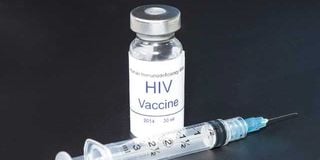HIV research suffers setback as ‘promising’ vaccine halted

The number of HIV infections from the participants who were given the vaccine were no different from those placed in the placebo group.
Scientists have halted a “promising” HIV vaccine clinical trial that had progressed to its last phase, citing non-efficacy, though ruling out safety issues.
The Mosaico study, which began in 2019, was conducted in different countries in the Americas and Europe.
It is the second of its kind to fail but researchers say the results, despairing as they may seem, have come with bags of lessons that will improve future studies. The other that failed in 2021 was called the Imbokodo study, conducted in South Africa.
Pharmaceutical company Johnson & Johnson made the decision to discontinue the Mosaico clinical trials after an independent body, the Data Safety Monitoring Board (DSMB), conducted an interim analysis of the vaccine’s efficacy and found it to be under par.
The DSMB said the number of HIV infections from the participants who were given the vaccine was no different from those placed in the placebo group. A placebo group is one that gets a semblance of the vaccine being tried, but one that does not have the ingredients of the actual vaccine. Participants were given four injections in a year.
Dr Anthony Fauci, head of the National Institute of Allergy and Infectious Diseases, which was a partner in the trial, expressed disappointment but said there are other HIV vaccine studies in the pipeline that he finds promising.
“I don’t think that people should give up on the field of the HIV vaccine,” he said. Dr Vincent Muturi-Kioi, a senior medical director at the International AIDS Vaccine Initiative, told Nation the name “Mosaico” is derived from its artistic counterpart which means to mix different pieces to form one piece of art — a mosaic.
In the case of HIV, he explained that the nature of the virus is such that it is constantly mutating and the study aimed at bringing together different strains of HIV to come up with one form of immune response that will help in preventing infections.
He expressed optimism in the field of HIV vaccine research, saying, the pitfalls so far are but lessons that could be implemented in successive and ongoing studies.






